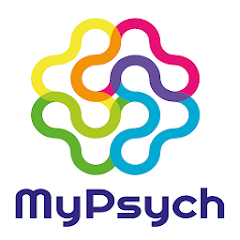Psychosis is a broad term that encompasses symptoms related to a change in perception of reality. This can arise from primary psychiatric disorders (e.g. schizophrenia, major depressive disorder, bipolar disorder), be triggered by use or withdrawal from drugs (prescribed medications e.g. steroids, or illicit substances e.g. amphetamines), or be secondary to medical conditions (e.g. delirium, brain tumour, MS, dementia, Parkinson’s disease, epilepsy).
Psychotic Disorders, including Bipolar Disorder

Warning
- Delusions – an abnormal belief held with absolute certainty
- Hallucinations – an apparent perception of something that is not present
- Disorganised thinking – evident through speech
- Disorganised motor behaviour – inability to complete goal-directed behaviour
- Negative symptoms – absence of reactivity/motivation/speech/sociability (most often seen in schizophrenia)
- Altered mood and changes to sleep/energy/concentration may occur with psychosis, most commonly in bipolar disorder (either mania or depression) and schizoaffective disorder.
- History – onset, duration, precipitating/perpetuating factors and stressors. Collateral history.
- All psychiatric history items remain important. Drug/alcohol history is vital.
- Examination – full physical examination including neurological.
- Mental Status Exam – focus on mood and affect, thought processes and content (including suicidal and homicidal ideation), insight and cognition/orientation.
- Investigations – FBC, U+E, LFT, TFT, urine drug screen, B12/folate, thiamine, folate, calcium, PTH, glucose. An autoimmune screen may be appropriate. When delirium is suspected, urinalysis, urine culture, blood culture and CXR may be appropriate.
- Based on clinical suspicion, head imaging and BBV screening may be worthwhile.
- Location of care depends on underlying cause, level of risk and functional impairment. For outpatients, discussion with same day mental health assessment service is often appropriate.
- Antipsychotics (e.g. quetiapine, olanzapine) are the mainstay of pharmacological treatment.
- Mood stabilisers (e.g. lithium, valproate) may be offered to those with bipolar affective disorder.
- In psychotic depression, treatment is sometimes combined with an antidepressant.
- For psychosis secondary to medical conditions, medical treatment takes precedence. Contact the psychiatric liaison team for support as required.
For more information on management, including psychological interventions, see NICE guidance in resources below.